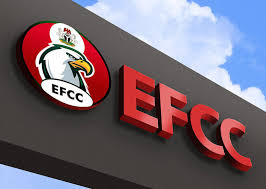To prevent more judicial wrath, the Economic and Financial Crimes Commission (EFCC) has been cautioned to quit criminalizing civil transaction situations that fall outside its established scope.
In accordance with the law that established it, the anti-corruption agency has been directed to reconsider its handling of civil cases and focus exclusively on criminal ones.
On Saturday, in response to the Supreme Court’s decision to overturn Senator Peter Nwaoboshi’s conviction for suspected over N800M fraud, an Abuja-based lawyer named Pelumi Olajengbesi issued a cautionary statement.
Senator Nwaoboshi was arrested and arraigned in Lagos’s Federal High Court after the EFCC accused him of acquiring property illegally.
The court, however, determined that the transaction was of a civil nature, casting doubt on the EFCC’s ability to engage in civil affairs. Thus, the accused were released and found not guilty.
But the Court of Appeal had a different opinion, therefore Senator Peter Nwaoboshi appealed to the Supreme Court.
The Supreme Court ruled that the entire case was based on civil transactions, not criminal ones.
It emphasized that the EFCC, which is charged with combating financial crimes and associated offenses, does not have the power or capacity to become involved in civil cases.
In response to the Supreme Court’s decision, Olajengbesi remarked, “Regrettably, this experience is not unique to Senator Peter Nwaoboshi but resonates with numerous Nigerians and stakeholders who have encountered the EFCC’s actions.”
“The agency, which was originally created to discover and combat financial wrongdoing both inside and outside of government, has strayed from its original mission and is now acting as a debt recovery agency, using its power to punish those it perceives to be its enemies.
To reiterate, the EFCC, like other law enforcement agencies, does not have the authority to intervene in civil transactions between private individuals and businesses. It does not settle financial disputes or collect debts.
This view has been upheld by the courts, including the Supreme Court, and is consistent with the EFCC Act and the Administration of Criminal Justice Act, 2015 (ACJA) in Nigeria.
Therefore, we urgently encourage the EFCC’s leadership to realign the commission’s methods with its objective. The EFCC must stay out of matters that are better left to the jurisdiction of courts or, at worst, arbitration panels dealing with civil matters.
“Such a course of action would not only restore the public’s faith in the anti-graft agency, but also safeguard the integrity and reputation of the Commission, which has been meticulously built over the years,” he said.
